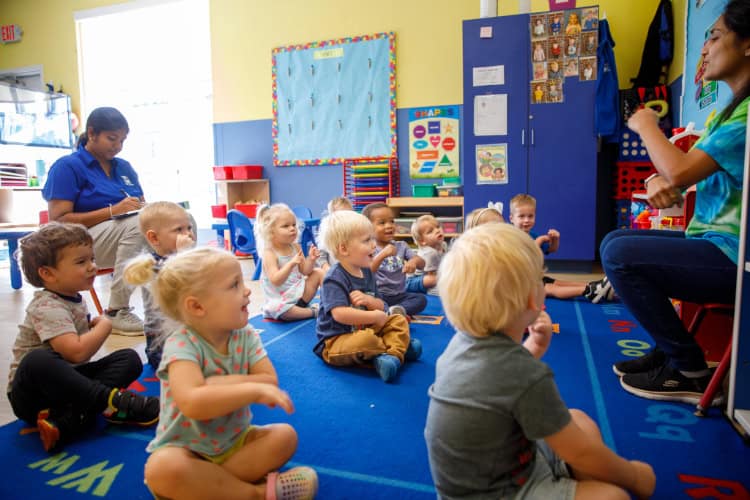
In a world where life moves quickly, emotional intelligence, resilience, and self-regulation are some of the most valuable traits a child can possess. Teaching self-discipline and incorporating conscious discipline strategies is a powerful way to set your child up for success. By building these skills, your child will learn how to understand and manage their emotions, make positive decisions, and develop meaningful relationships.
This guide explores what conscious discipline entails, why it matters, and practical ways to nurture self-discipline in your child.
What Is Conscious Discipline?
Conscious discipline is a comprehensive approach that emphasizes self-regulation, connection, and emotional intelligence. Unlike traditional discipline methods that may focus on rewards and punishments, conscious discipline helps children become aware of their emotions and behaviors and learn how to make thoughtful choices.
The goal is to empower children to understand their feelings, manage stress, and develop strategies to respond to challenges. By teaching how to be self-disciplined, children learn to take responsibility for their actions and build skills that will benefit them throughout life.
How to Teach Self-Discipline Using Conscious Discipline Techniques
1. Foster Emotional Awareness
The first step in building self-discipline is to help children identify and understand their emotions. Use language that encourages them to express how they feel. For example, you can say, “I see you’re upset. Can you tell me what happened?” Validating their feelings builds trust and helps them gain clarity on what they’re experiencing.
2. Teach Breathwork for Emotional Regulation
One of the core strategies in conscious discipline is using breathwork to regulate emotions. When children are upset, anxious, or angry, teaching them the benefits of breathwork can be transformative. Simple breathing exercises like slow belly breaths or counting breaths help calm the nervous system, clear the mind, and make it easier to make positive choices.
Here are some effective breathwork exercises you can try with your child:
- Belly Breathing: Ask your child to place their hand on their stomach, breathe in slowly through their nose, and feel their belly rise. Then, have them slowly exhale through their mouth.
- Counting Breaths: Encourage your child to inhale for a count of four, hold the breath for a count of two, and then exhale for a count of four.
Breathwork promotes a state of calm and readiness, making it easier for children to respond thoughtfully rather than react impulsively.
3. Create a Life Skills Curriculum at Home
A well-rounded life skills curriculum helps children build the foundation they need for independence and success. Start with small, achievable goals and gradually increase their responsibilities. Here are some life skills to incorporate:
- Time Management: Teach your child how to create a simple schedule and stick to it. This could include setting aside time for homework, chores, and play.
- Goal Setting: Help your child set achievable goals and track their progress. Celebrate milestones to keep them motivated.
- Problem-Solving: Encourage children to brainstorm solutions when faced with challenges, rather than jumping in to solve problems for them. This builds resilience and critical thinking skills.
4. Model Self-Discipline
Children learn by example. Show them how to be self-disciplined by setting goals, sticking to routines, and managing your own emotions. For instance, if you’re feeling stressed, verbalize how you’re using breathwork to calm down. By modeling these behaviors, you teach your child that self-regulation is a lifelong skill worth mastering.
5. Use Positive Reinforcement and Encouragement
Rather than focusing on punishment, use positive reinforcement to acknowledge and reward good behavior. When your child demonstrates self-discipline—such as staying calm during a conflict or completing a task on time—praise their effort. This reinforces the behavior and encourages them to keep trying.
6. Establish Consistent Routines
Consistency provides children with a sense of security and helps them develop self-discipline. Create predictable routines for meals, bedtime, and daily activities. This structure makes it easier for children to understand expectations and develop habits that contribute to their success.
Why Conscious Discipline Matters
Conscious discipline teaches children how to self-regulate, build empathy, and connect with others. By focusing on emotional intelligence and life skills, children become better equipped to handle the ups and downs of life. These skills lead to improved relationships, academic success, and a greater sense of self-confidence.
Activities to Practice Conscious Discipline at Home
1. Emotion Cards
Create or buy a set of emotion cards with different facial expressions. Encourage your child to pick a card that matches how they’re feeling and talk about it. This activity helps them identify and express their emotions.
2. Calm-Down Corner
Designate a quiet space in your home where your child can go to calm down when they’re feeling overwhelmed. Include sensory items like stress balls, fidget toys, or a favorite stuffed animal. Teach them to use breathwork exercises in this space.
3. Role-Playing Scenarios
Practice real-life scenarios, such as sharing toys or resolving conflicts. Guide your child through how to respond with self-discipline and empathy. Role-playing builds confidence and prepares them for similar situations in real life.
4. Morning Affirmations
Start the day with positive affirmations. Encourage your child to say, “I can handle challenges,” or “I am calm and ready to learn.” Positive self-talk reinforces a growth mindset and promotes self-discipline.
5. Family Goal Setting
Set weekly or monthly family goals, such as completing chores, practicing breathwork, or managing emotions during stressful times. Working together as a family creates a sense of accountability and teamwork.
Ready to Teach Your Child Conscious Discipline?
Teaching your child conscious discipline is a powerful way to help them develop self-discipline, emotional intelligence, and essential life skills. By incorporating techniques like breathwork and a personalized life skills curriculum, you set them up for a future of resilience and success. With patience, encouragement, and consistent practice, your child will gain the tools they need to thrive in every area of life.
If you found this post helpful, you’ll love our monthly newsletter! Sign up for more parenting tips, advice to help preschoolers, and updates on all things Kiddi Kollege.


